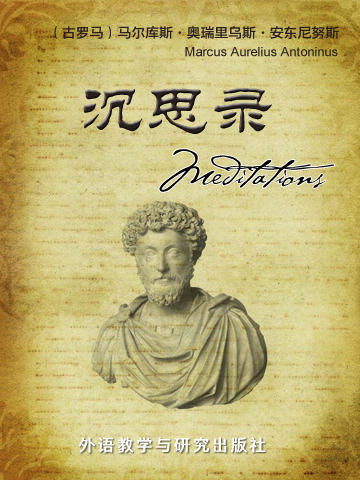两千年前的人生感悟,至今仍闪烁着智慧的光辉,对今人的生活有重要的指导意义。
Of my grandfather Verus I have learned to be gentle and meek, and to refrain from all anger and passion. From the fame and memory of him that begot me I have learned both shamefastness and manlike behaviour. Of my mother I have learned to be religious, and bountiful; and to forbear, not only to do, but to intend any evil; to content myself with a spare diet, and to fly all such excess as is incidental to great wealth. Of my great-grandfather, both to frequent public schools and auditories, and to get me good and able teachers at home; and that I ought not to think much, if upon such occasions, I were at excessive charges.
本书是古代罗马皇帝马可•奥勒留撰写的个人哲学思考录,文字仿佛从心灵深处流淌出来一般,朴实却直抵人心。奥勒留的雄才大略最终没有挽救到大势已去的古罗马帝国,但他的《沉思录》却成为西方历史上最打动人心的巨著。
作者主要思考了人生伦理问题,兼及自然哲学。书中大部分内容是他在鞍马劳顿中所写,他以谦逊和优美的笔调写就这些平实而发人深省的话语,充满了伟大的智慧,是斯多葛派哲学(斯多亚哲学)的一个里程碑。
- Introduction
- THE FIRST BOOK
- THE SECOND BOOK
- THE THIRD BOOK
- THE FOURTH BOOK
- THE FIFTH BOOK
- THE SIXTH BOOK
- THE SEVENTH BOOK
- THE EIGHTH BOOK
- THE NINTH BOOK
- THE TENTH BOOK
- THE ELEVENTH BOOK
- THE TWELFTH BOOK
- APPENDIX
- GLOSSARY






















 京公网安备 11010802032529号
京公网安备 11010802032529号
笔记加载中...